|
Spring is such a beautiful season and is usually filled with many engagements and weddings after Easter. Thinking of my own time of engagement, I remember everything seemed like a whirlwind! Our engagement was about 11 months long, and we were certainly appreciative of the planning time we had in going through marriage preparation without rushing.
Thankfully, my husband and I were both on the same page when it came to getting married in the Catholic Church. Prior to our engagement, we had already discussed wedding budget expectations, length of engagement, and a wedding location. I was grateful we had these conversations so early. As my husband, friends, and family can all attest to, I am a planner. To no one’s surprise, I set up an appointment the day after our engagement to meet with our church to begin our marriage preparation process. (Of course, it could have been from my excitement as well!) We learned SO much throughout our marriage preparation process. Hopefully we can share some helpful thoughts with those who are currently planning or will plan for a Catholic wedding in the future. 1. During engagement, meet with your priest as often as possible. Both of us wholeheartedly agree that meeting with our priest early and often was the most important part of our marriage preparation. We met our priest throughout our engagement for more than the required meetings. And it was quite fun! Engagement is a time for preparing for marriage, which lasts a lifetime – not one day. Investing in your relationship both together and with your priest is such a crucial part of this preparation and should take priority. Our priest tailored our conversations to our unique relationship and covered topics we had not considered. 2. Read marriage books with your fiancé/fiancée. Both my husband and I thoroughly enjoy reading, and we highly recommend this activity for engaged couples. Reading books, such as Fulton Sheen’s Three to Get Married, brought us closer together as we discussed the theology and profundity of the marriage sacrament. Consider it as your own little book club! Other books we enjoyed reading include:
3. Consider utilizing a Catholic wedding planning guide to help you prepare. Think about utilizing a Catholic wedding planning resource that can help cut down on the amount of time you spend researching and planning. A dear friend gifted me Invited: The Ultimate Catholic Wedding Planner by Stephanie Calis, and it was an incredibly helpful resource. Read stories, wedding tips, and marriage preparation advice on Spoken Bride, a Catholic lifestyle blog for brides and newlyweds. I found many of the blog posts to be helpful in planning a Catholic Mass as the authors and featured brides shared many details I had not thought of before or of which I was not aware. 4. Use your engagement as a time to focus on building a foundation for your marriage. When wedding planning has you frazzled or conflicted with your future spouse or family members, remind each other that your wedding day is about the marriage sacrament. Everything else will fall into place. The details that matter will come to fruition. Pray for or with your spouse, friends, or family members when tensions arise. 5. Enjoy the process of planning your wedding Mass. Other than your funeral, your wedding Mass is the only entire Mass you’ll get to plan! This was our favorite part of the wedding planning process. We encourage you to look into the different types of Catholic traditions, symbolism, and moments of meaning that can be incorporated into your wedding Mass. Do you have a favorite saint that can be included with song, prayer, or other elements? Perhaps you’ve always envisioned sharing a bouquet of flowers with the Mary statue at your church, or maybe you wish to incorporate the wedding lasso or arras ritual. We incorporated the Croatian tradition of holding a crucifix while saying our vows. Consider your favorite Mass songs and readings. Do you have a theme or message for your guests? Ours was: We love because God first loved us. Our songs, readings, Psalm and other selections were made with this theme in mind. 6. Take Natural Family Planning classes together. The USCCB states that Natural Family Planning (NFP) is “the scientific, natural, and moral methods of family planning that can help married couples either achieve or postpone pregnancy.” NFP honors both the love-giving (unitive) and life-giving (procreative) aspects of God’s design for married love. Before your wedding, you’ll want to have had several months of learning with an instructor and practicing your choice of one of the many NFP methods. 7. Participate in an engagement retreat. Typically, attending an engagement retreat is a diocesan requirement as part of marriage preparation. Our church held a day-long retreat complete with Mass, meals, prayer, books, and talks from mentor couples at various stages in life. Hearing anecdotes and tips from our mentor couple and the other couples leading the retreat was particularly helpful to us. Check with your diocese and parish on what retreats are required or available, such as Engaged Encounter. 8. Take a financial planning course together. We highly recommend taking a financial planning course as a couple. It is so important to be on the same page financially, as this area can be one where many future disagreements begin. Going through the process of making a budget, knowing the amounts and kinds of debt each person may or may not be bringing into the marriage, sharing financial goals, and understanding how each person views money is crucial. We actually went through Financial Peace University’s CDs just before our engagement (a previous college graduation gift from my parents – thank you, Mom and Dad!), though there are other financial planning courses such as Wallet Win. 9. Pray together. Praying as a couple is such an important habit that will strengthen your marriage and build a foundation for your spiritual life together. However you prefer to pray, it’s important to pray for and with each other. My husband and I chose, or rather God chose for us, to pray a constant string of novenas and alternating who chose the next novena when the previous novena ended. Our prayer routine has changed in different ways since marriage, but we have always continued to pray every night together – deepening the God-husband-wife relationship. 10. Practice making sacrifices for others and one another. As you may have heard and witnessed, marriage is an act of dying to self. Following in Jesus’ example, we sacrifice ourselves in everyday ways for our spouse and children. In a 2009 pastoral letter by the USCCB, it is said, “There is no greater love within a marriage and a family than for the spouses and children to lay down their lives for one another. This is the heart of the vocation of marriage, the heart of the call to become holy.” By volunteering together and practicing little acts of sacrifice for those around us and your beloved, you participate in strengthening the muscle of self-gift – one you will flex daily in marriage. Click here for more resources on Marriage and Family.
0 Comments
Having enjoyed being a father for many years, upon learning of the impending birth of a grandchild, I looked forward eagerly to that day. (I even considered the shirt I was wearing when I heard the news to be my “lucky shirt.”) Now, about seven years later, I am truly delighted with my two lovely granddaughters, as they approach the ages of seven and three. They are beautiful in every way, but I especially appreciate the beauty of their hearts and souls. This I attribute gratefully to their mother and father and to God in His goodness. As a grandfather, I have been fortunate to spend much time with my granddaughters both before and after the onset of the COVID pandemic. And, especially as a grandfather, I see St. Joseph as an inspirational role model. My view of St. Joseph is of a man who was comfortable and happy remaining, for the most part, in the background. He evidently found no need to be the center of attention. He simply did his work caring and providing for Mary and Jesus and likely for anyone else who came within the ambit of his responsibilities. He worked hard at his craft and traveled as necessary to keep his family safe. It seems that he did not need to say much using words. I see his example as a goal for me as a grandfather—to be there when needed, to try to promote the health, safety and general well-being of my wife, children, and grandchildren and otherwise—specifically as to grandchildren—to remain when possible in the background, with support and occasional contributions to their physical, spiritual and psychological educations. But being a grandfather is far from only being work and encompassing responsibility. It is mostly about the joy and wonder of being together with grandchildren—to see firsthand the development of human beings gaining strength in mind, body, and soul. I imagine that St. Joseph was pleased but often surprised by the growth and development of Jesus as a child, young boy, and young man. With St. Joseph’s likely experience in mind, I can try to recognize and realize that growth and development is not necessarily predictable. I am constantly surprised by what my granddaughters can do and what they can express in words that seem beyond their years. They are most entertaining and one of a grandfather’s delightful duties is not only to be entertained but also to be able to join in the games and play activities sparked by the imagination of young children. The great value of having the life of St. Joseph as a guide is that there is value in simple presence—being there, experiencing life with young persons, seeing the world through their eyes, noticing and appreciating the moon, stars, or sun, or the dog or cat on the street. Being with grandchildren is akin to what I have often thought about going camping—it makes simple things complicated and complicated things simple. As I anticipate spending more time with my granddaughters, I continue to look to St. Joseph for guidance. As part of my daily prayers, I ask St. Joseph for his intercession for all of us. From his unique role in God’s plan, St. Joseph is well-situated to be an advocate for those of us still on our journeys. What better team could we find to assist us in this manner than our Blessed Mother Mary and St. Joseph? They were holy persons, who during their lives on earth experienced a full range of joys, sorrows, and challenges, and are thus in a great position to sympathize and empathize with us and to advocate for us as we try to work our ways through the many opportunities presented to us to be of service to one another. **This post is part of our series on Fatherhood to celebrate the Year of St. Joseph. To learn more, please click here. For more resources on Marriage and Family, please click here.
Next week is Holy Week. Before we arrive there and enter the most solemn of days of the Church year, the Easter Triduum, we come to another Solemnity during the Lenten season. Last week, it was the Solemnity of St. Joseph, spouse of the Blessed Virgin Mary and patron of the Universal Church. Tomorrow, it is the Solemnity of the Annunciation of the Lord. Both offer us examples of how to respond to God’s action in our lives. The Blessed Virgin Mary and St. Joseph responded freely and fully to God’s invitation announced by the angel to move in directions that they did not expect. While we may not have an angel announcing God’s will for us, in what ways do we discern the direction that we are called to take? Recently, I attended the religious profession of a Benedictine monk who is a former student of mine. Some of those who attended the Mass and profession ceremony in support of him were also former students who are now either diocesan or religious priests or married with children. (Some are also former staff members and collaborators of the Center.) Each in their own way has followed God’s invitation to them. In and through their chosen vocations, they have found joy in living more deeply their Christian life.. While they have found joy, they also know what it means to take up the cross and follow Jesus Christ as his disciples. None of them made the choices that they did easily, but did so through cooperation with the grace of Christ. We are called to the same. Holy Week offers us an important opportunity to reflect, discern, and act on God’s will in our lives. Join us on social media for our Virtual Holy Week retreat. We offer it as a way of doing this type of discernment in the context of this most solemn time. Please know that our prayers are with you, especially during the Easter Triduum and season. May the charity of Christ urge us on!
Lent is the perfect time each year to do a personal assessment of our relationship with Jesus – to see if we are walking the path to sainthood as we are called. God calls each of us to become saints and it is imperative that we evaluate our spirituality, our actions, and our goals. This year I have been using three specific resources to aid in my self-reflection and in resetting my focus. Fr. Thomas Dubay’s Happy Are You Poor, Matthew Kelly’s I Heard God Laugh, and the music of Danielle Rose are helping me with my grand reset.
During this beautiful time of Lent, my individual assessment of my growth in holiness is both difficult and reassuring. In reflection, I am reminded that I am here to live out the Beatitudes – not to have memorized them, but to daily use the opportunities in my station in life to live them out. God also reveals to me that I am not to be like my favorite saints, but to become a saint by being authentically me, the unique person He created me to be. He also continues to enlighten me about deeper ways to communicate with Him in prayer. Little snippets in the morning give me focus to be the living sign of God’s love in the world I walk in. Then, throughout the day, I ask for help to physically live out the mission He has called me to. Simple little mantras such as: “Lord, help”, “Jesus, not my words and responses, but Yours”, “Jesus, Mary and Joseph give me strength and courage” are prayers I repeat throughout the day to help me remain in God’s will and not in my own. Growing in our Christian life is a continual moment by moment journey of self-discovery. The more we grow in love of Jesus, the better we come to know ourselves and the importance of our individual participation in His glorious mission in the world. I am struck by the essential commitment I must have to become who I was created to be, because that is how the presence of our Lord Jesus Christ is made known to those around us. “When you hung upon the cross looking at me, You didn’t die so I would try to be somebody else. You died so I could be the saint that is just me” is the refrain Danielle Rose sings that speaks of the magnitude of Jesus’ love for each of us and the intimate connection He desires with us. These little rituals and inspired guides keep me grounded as I live in the messiness of my humanity in this complicated world. Another aspect of my relationship with Jesus that I am examining comes from Happy Are You Poor. Fr. Dubay helps us to understand the things we are attached to, and why, and if these attachments are leading us deeper into the heart of Jesus or driving us away from Jesus. This is always a difficult process because I have to repeatedly admit to the things I am attached to that bring me temporary comfort and feed my selfish nature, and then I have ask for the grace to let go of these things I cling to so that Jesus can live in me. These practices in Lent are difficult, but not out of my reach. I attend daily Mass as frequently as possible and this communion builds the holy virtues to let go of my earth stuff, my temporal comforts, and to open myself to be God’s. At the beginning of each Mass, we recognize our fallenness and verbally repent and commit to do better. God’s love and mercy are always available to us so that we can change for the better. That is the assurance that keeps me striving. And in the quiet after receiving the Eucharist, I speak in my mind part of Psalm 95: “For You, O Lord, my soul in stillness waits, truly my hope is in You.” Matthew Kelly gives me such tangible and direct instruction to realign my life within God’s will. His emphasis on deepening our prayer life and then giving direct ways to accomplish this are worth reading and putting into practice. He speaks to us in the reality of our busy, chaotic, and very full lives with a simpleness that I can relate with. His theology is completely understandable and therefore gives me assurance that I can put it into practice in my daily life. Lenten rituals cause us to be uncomfortable in our flesh (as Jesus was in the desert) so that we can be totally dependent on our God to lead us. This examination, this ‘coming clean,’ is a necessary element of our Christian journey. Receiving the Eucharist to nourish us and receiving absolution in the Sacrament of Reconciliation are the wonderful gifts we have to assist us in our closer walk with Jesus and in fulfilling the individual purpose of our lives. Finding scriptures to meditate upon and asking God to reveal what He wants us to do daily to lead us to deeper levels of intimacy with Christ. All of these are designed to enlighten us, to transform us, and to bring us to a more joyful celebration of the victory of Easter! So, my fellow comrades, embrace the work that this season of Lent provides so that we may all grow deeper in love with our Lord and He may live and move and breathe through us! “Lord make us turn to you, let us see your face that we may be saved.” -Psalm 80 Click here for more resources to accompany you this Lenten season. “O my people, I will open your graves and have you rise from them, and bring you back to the land of Israel. Then you shall know that I am the LORD.”-Ez. 37:12-13 “Come out!” The words reverberate and resound in the stench-filled tomb. We too need to hear the words proclaimed to the dead man as we approach the end of our Lenten journeys. Come out! Lent has been our own time of preparing for resurrection—abstaining from anything that deadens us to the voice of Christ inviting us to the fullness of life. For the past few weeks, we have participated in spiritual practices that renew and refresh our spirits. We’ve journeyed with Jesus in our own deserts. And the culmination of this journey is about to occur in only a couple more weeks. Lazarus’ resurrection precedes the Resurrection that changes everything. It is a glimpse of what awaits us after death. The once rotting man stumbles out of the dark and into the light of Christ—his dear friend. Lazarus’ sisters, Mary and Martha, do not even say his name when telling Jesus of his illness, but identify him simply as “the one you love.” The one you love…What a beautiful way to be identified. I think about this for a moment before realizing this is what we are all called to and all invited to: to be the ones Christ loves. This short phrase is our deepest identity as baptized sons and daughters. We are the ones He loves. And as we prepare for Holy Week and Easter Sunday, this reality will be fully demonstrated: “For God so loved the world that he gave his only Son” (John 3:16). Jesus will tell us on Good Friday, embracing us with arms wide open on the Cross, “you are the one I love.” As a result of this great gift, Christ can call us to resurrection—not only after death, but in the here and now. So many realities in our world today threaten to numb us from this true reality. Perhaps we find ourselves in Mary’s shoes. When she and her sister hear of Jesus’ coming, Martha runs to meet Him, but Mary stays where she is. Was hope dead within her? Was she too consumed with her grief to dare to have faith? Did death have the last word? Perhaps many of us feel the same way: disillusioned. Tired. Grieving. Doubtful. But Mary’s sister, Martha, shows us another way. Her path leads to the resurrection of her heart in the here and now. In today’s Gospel, the sisters seem to have traded places. Today, it is Martha who chooses the better part. She runs to meet Christ at the moment she hears of His coming. In spite of any doubt, fear, disillusion, or grief—she acts in hope. And this leap of faith is what enables her to give Jesus her all and say, “Lord, if you had been here, my brother would not have died. But even now I know that whatever you ask of God, God will give you.” (emphasis added) (John 11:22) In these words, I hear her say, “Lord, I am disappointed. I am grieving. My brother has died and you were not here. Had you been here, he would have lived. But I give this desire to you. I trust in you. Let it be done according to God’s word.” This, in a sense, can be Martha’s fiat. Her surrendered disposition, mixed with faith, trust, and hope, is what then enables her to confirm, “Yes, Lord. I have come to believe that you are the Christ, the Son of God, the one who is coming into the world.” Martha has joined the woman at the well and the Apostle Peter in confirming Christ’s identity as the Messiah. She has “come out” of her own tomb. This past calendar year has likely felt like a tomb for many of us. Perhaps we feel most like the seemingly abandoned Lazarus languishing in the dark. “Where were you, Jesus?” we may ask with Mary and Martha. “Do you not care that the one you love is suffering?” Jesus does more than care. It is so comforting to read that “Jesus wept” at the knowledge of Lazarus’ death and became greatly perturbed. I can imagine the same, if not a greater, reaction at the death of his earthly father, Joseph. Christ weeps at our suffering. The Creator shudders to see His creation perish. This is not what we were made for. And in His humanity, Christ weeps with us and for us. But not only will the Son of God weep for His loved ones; He will die for them in just a few days. It is not enough for Him to acknowledge our suffering—He takes it on. He transforms it. He transfigures it. He resurrects it. As we approach the end of the Lenten season, let us not stay put with Mary but run out with hope like Martha. I pray this Easter Sunday to say firmly with her, “Yes, Lord. I have come to believe that you are the Christ, the Son of God, the one who is coming into the world.” We are the ones whom He loves. Let us spend some time relishing, resting, and growing in this identity in the remainder of the Lenten season and beyond. In these final weeks of Lent, let us continue to “come out” of our tombs with our prayers, fasting, and almsgiving so that we may not stumble as Lazarus did but run out towards Him who calls our name. Let us come out into the light. For more resources to accompany you on your Lenten journey, please click here. Click here for this Sunday's Mass readings.
I’m not much of a poetry person. I did what I could to avoid it in middle and high school, as well as college. But there is one poem that I like—in fact, that I love. It goes like this:
“Hope” is the thing with feathers -
That perches in the soul - And sings the tune without the words - And never stops - at all - And sweetest - in the Gale - is heard - And sore must be the storm - That could abash the little Bird That kept so many warm - I’ve heard it in the chillest land - And on the strangest Sea - Yet - never - in Extremity, It asked a crumb - of me.
That is “Hope is the Thing with Feathers” by Emily Dickenson. I always liked the poem, the way it rhymes and the way it rolls off the tongue. It became even more important to me when my father became ill. I clung to this poem because it reminded me that hope is always with us; that even in the greatest storm, hope remains and remains without ceasing.
As Christians, we cling to hope. This season of Lent which we find ourselves in right now is a period that prepares and leads us to that ultimate instance of hope in the Christian life: the Resurrection. Much like the hope that Dickenson writes of in her poem, the hope of the Resurrection remains with us at all times. It never stops, it remains with us in our souls, and it is, if I may create a word, “unabashable.” The thing is, it can be hard to see this hope in our lives, regardless of its unceasing presence. Pope Francis dedicates two paragraphs of Fratelli Tutti to the virtue of hope. He writes: Hope speaks to us of a thirst, an aspiration, a longing for a life of fulfillment, a desire to achieve great things, things that fill our heart and lift our spirit to lofty realities like truth, goodness and beauty, justice and love… Hope is bold; it can look beyond personal convenience, the petty securities and compensations which limit our horizon, and it can open us up to grand ideals that make life more beautiful and worthwhile” (Fratelli Tutti, 55). Hope transcends our ups and our downs, our individual trials and tribulations, not because they are insignificant, but because the Resurrection, in the end, is greater than every one of those. The hope of the Resurrection doesn’t minimize our trials, or even our personal convenience and petty securities, but it is the light which illuminates the darkness and allows us to move past them on our journey with Christ. The hope of the Resurrection, the hope of Christ perches in our soul and it sings the tune of Alleluia (pardon my use during Lent) without ceasing. This hope, much like the little bird that Dickenson describes, is in fact sweetest in the gale, in the storm, because we are called to recall that Jesus Christ will provide for us in ways that no other person or thing ever can. In the midst of Lent, much like through all of our sufferings, hope can be heard as a melodious tune above the groans of those trials which we face. May we look to hope, the thing with feathers, the Resurrection, this Lent and always. For more resources to accompany you during your Lenten journey, please click here.
I’m always skeptical when I hear others describe instances of suffering as “blessings in disguise.” Can you imagine breaking your arm and having a friend say, “That’s a blessing in disguise!” – while you’re still sitting in the ER? Sure, they might be right eventually; but in that moment you would be in too much pain for their words to be helpful. You might even consider deleting that friend’s phone number. The events of the last year have made it even harder to recognize such hidden blessings. Amidst universal confusion, we are thirsting for straightforwardness. Maybe that’s why today’s Gospel reading is hitting me differently. In this passage, we receive a clear and radiant report of Jesus’ person and ministry: “For God so loved the world that he gave his only Son, so that everyone who believes in him might not perish but might have eternal life.” In these words, we find Jesus directly offering Himself and extending His invitation to each one of us: believe and trust me. He is unmasked, undisguised. Now, will Jesus’ straightforwardness give me the courage this Lent to step out from behind my own disguises? Focus (Social Justice): Today’s Gospel suggests that darkness is part of the human experience. When I reflect on the world, the United States, and even my city of Washington, D.C., there is surely darkness preventing us from achieving equality and equity for all. This darkness is within me too, in the moments when I doubt change is possible. God acknowledges this darkness by sending his light and messengers into the world. Their examples help guide us and strengthen us. Is there a particular messenger who inspires your own prayers and actions this Lent? Prayer: God, thank you for this life and journey. Please help me along the way. When the world seems dark, please help me remember the hope and humor you’ve placed in my heart. When my own darkness attacks me from within, please help me to reach out beyond myself to others. You have placed good friends in my life – help me to remember they are there for me! Please help me to be a friend and helper in return. Amen. Service Suggestion: This Lent, reach out and call or Zoom each week with someone in your life who you haven’t seen or heard from in a while. You may help to reduce the isolation that person may be feeling during this lengthy pandemic. This reflection is from the 2021 Lenten Reflection Guide. To access the complete guide, please click here. Before Lent 2021 began, I had fallen into a habit of making excuses for my weaknesses, the biggest of which was: "I would be able to have the spiritual life I want if I didn't have three children, a husband, and a household taking up all of my time!"
The idea of spending most of the day in quiet or chanted prayer is attractive—especially now, when I have a husband, a house, and three children. St Frances of Rome would have understood this—as a preteen she desperately wanted to be a nun, but her family arranged a marriage for her instead; rather than entering the convent, she entered a wealthy and connected family. Frances never let go of her devotion to God, although she did eventually grow into and embrace her temporal vocation as the manager of a wealthy and influential Roman household. She found a balance of work, prayer, and asceticism that she could incorporate into her daily life. For Lent this year, I decided to imitate St. Frances and take a page from her playbook, incorporating more prayer into my daily work and adding ascetic practices that are realistic for my current phase of life. I have a specific time of day for meditative and personal prayer with God that I try to maintain every day, but in addition to that, I have been trying to intertwine work, prayer, and asceticism whenever I can. Instead of listening to current events podcasts when I do the dishes, I am using one of these abacus style kitchen rosaries so that I can pray while I work and so that I can keep track of where I had to stop when I was interrupted by the needs of my children. Instead of scrolling through social media or aimlessly puttering around on my phone while I nurse the baby, I am working my way through St. Ignatius of Loyola’s Personal Writings. I may not be able to fully partake in Lenten fasts due to my nursing baby, but I can avoid snacking whenever possible—and when I have to watch my children eating my favorite granola bars while my stomach is starting to rumble, I try to offer it as a prayer and remind myself that small acts of self-denial prepare us for big acts of self-denial. Other ideas for minor ascetic practices that we can add to our Lenten promises (or Fridays in Ordinary Time) include: taking cold or cool showers instead of hot ones, not eating any sweets or desserts, not using a pillow at night, and adopting more days of the week when we abstain from meat. St. Frances of Rome is quoted as saying, “A married woman must, when called upon, quit her devotions to God at the altar to find him in her household affairs.” This is definitely true for me; doing the laundry, cooking the meals, and giving the reading lessons are my responsibilities. I can show my love for God by loving my family and by making these humble sacrifices rather than neglecting my duties in favor of carrying out an arbitrary set of devotions every day. As we continue on our Lenten journeys, I encourage you to think about how you can incorporate more prayer and asceticism into your daily routines. For more resources to accompany you this Lent, please click here. For more resources on Marriage and Family, please click here. I am grateful for the occasion to share just a few reflections on my discernment journey and priestly ordination during the pandemic, the “COVID class” of 2020! It was about one year ago—March 2020—with less than two months before graduation from St. Mary’s Seminary in Baltimore, MD and ordination scheduled for June when those plans began to change. Like the many high school and college students preparing for graduation, my deacon classmates and I (and the rest of the seminary) were sent home to complete our coursework alone online. Like the many engaged couples preparing for their summer weddings and receptions, our priestly ordination dates were postponed and receptions cancelled. While trusting in God’s grace and purpose, how could I help but feel at least a little disappointed and even frustrated? And yet, therein lie some important lessons God wanted to show me about the life we are each called to live. Every vocation—life’s path and purpose—begins by accepting our way is not always God’s way, and our time is not always God’s time (Isa 55:8-9). And yet, I’ve slowly recognized a great freedom in that fact. A vocation is not about “planning out” your life, or making sure things happen the “right” way. Life does not follow a predetermined script. A vocation is not an intellectual puzzle we work on and hope to “figure out” (or else fail…), but a stepping out in faith day-by-day. Vocation is more about letting go of the controls to be free enough to move in the direction God beckons. A vocation is always a dynamic response to God’s call from a place of freedom and love. And so, while a vocation does involve making a free choice, it’s not about calling the shots in life or predicting the future, but trusting God with the simple question, “where and what next?” Due to the COVID lockdown of 2020, I realized the date and circumstances of my ordination were beyond anyone’s control. Some suggested having small, private ordinations so we would become priests “sooner,” even if we still couldn’t yet go out and serve in parishes, but respectfully, I personally disagreed with that idea. The pandemic re-affirmed my conviction that we were becoming priests for the people of God, not for ourselves. Compared with the physical and emotional toll of the pandemic, the waiting game was an easy burden to bear. The background of the pandemic created a new context to reflect on what shape my life and ministry might take. In our society’s fixation on “finding our best selves,” the gospel-centered vocation acknowledges that “whoever loses his life for my [Jesus’] sake will find it” (Mt 10:39). Vocation is part of our personal participation in the great “mystery of faith,” the “Paschal Mystery” of Christ’s death and Resurrection the Church celebrates most powerfully in Lent and Easter. We cannot experience the true Jesus without both his Resurrection and Cross, and so every authentic vocation will have both its cross (struggle and sacrifice) and its resurrection (joy and victory). However you discern, expect your vocation in life to feel like both at times. Amidst the hardship of our world, a small taste of the patient suffering of the Cross leading up to my ordination turned out to be a small but precious gift not to take for granted. For months during quarantine, I watched medical professionals and other essential workers care for the sick and deliver basic needs—the corporal works of mercy—on the local, national, and international stage. As a deacon waiting in the wings to be deployed to a parish, I felt primed to be sent and make an impact. But all I could do was stay home and pray the Liturgy of the Hours. That summer I did not feel heroic or “essential.” Having been fed a steady diet all through seminary of “the Church needs you!”, I had to accept it wasn’t my moment to be a hero or an influencer. My call was behind-the-scenes mission support, not leading the charge on the front lines. Following Jesus’ instruction to “watch and pray” (Mt 26:41) as others experienced trial and suffering in hospitals and homes challenged me to rid myself of any pretensions of being a priest as being God’s biggest hero. Vocations—religious or secular—motivated by the muscular desire to save the Church/world and solve Her problems almost always end up hurting people in strongarmed attempts to fix whatever they perceive as broken. Before the Cross, there are times all we can or should do is “behold” the brokenness and hurt (Jn 19:26). On the eve of ordination, that forced inactivity was excruciating, but it also drove home a humble admission behind every vocation: I need God more than God needs me. The Cross is essential to Jesus, and beholding Jesus in the sick and suffering, God became more essential to me. To “behold” is not to evade responsibility, but to see that our suffering does not go unnoticed and unredeemed. Not coincidentally, it is on the Cross that we truly see Jesus as our eternal High Priest, the model of priesthood, who is willingly sacrificed for the redemption of our sins. And so, the experience of being ordained a priest during the pandemic, while full of spiritual and personal challenges, also became the occasion for greater reflection on my identity, vocation, and mission. The delay was not lost time, for any time spent with Christ in prayer or service is only counted as gain. I was ordained a priest of Jesus Christ on August 22, 2020. Behold and follow the Cross, and who but God knows where it may lead! For more resources on Vocational Discernment, please click here. For more resources to accompany you through the COVID-19 pandemic, click here. In his book, The Idiot, Fyodor Dostoyevsky famously wrote that, “Beauty will save the world.” For Christians, this phrase takes on an even deeper meaning theologically. The Christian worldview views truth, beauty, and goodness as reflections of the One who is perfectly True, Good, and Beautiful: God Himself. Authentic expressions of human creativity in some way glorify the ultimate Creator who endowed mankind with the freedom to co-create. We do this in a miraculous way through procreation, but also each time we write, dance, paint, mold, shape, sing, and so on. To celebrate art as a form of evangelization, the Catholic Apostolate Center invited two artists to share their perspectives on creating art and how art can also be a form of spreading the Gospel. For our first artist spotlight, Center contributor Dana Edwards Szigeti interviewed graphic designer Tracy Johnston. Our second artist spotlight features Spoken Word performer Michael Mookie C. Manalili in his own words. Artist Spotlight: Tracy Johnston (Graphic Designer) How did you get involved in your artistic expression? Since high school, Catholic artist and mom Tracy Johnston has been creating art for her family, friends, and others. While earning her college degree in Studio Art at the University of Central Florida (UCF), Johnston designed retreat flyers, youth group T-shirts, and fundraising campaign materials for several groups and organizations, including the UCF Catholic Campus Ministry in which she was very involved. After graduating, she continued this service to young adult ministries and youth ministry. These projects provided Johnston with plenty of experience that helped develop the skills she uses today for her small business. Johnston specializes in hand-painted wood signs, canvas art, chalkboards, printables, and Rosary hangers. Working as a stay-at-home mom and artist has always been a dream for Johnston. While employed as a full-time graphic artist, Johnston began looking for ways to stay at home with her first baby. She decided to open an Etsy shop to sell Catholic artwork – the first big step toward her dream. What is the intersection between your art and faith? How can art be a form of evangelization? As part of her research, Johnston reads a lot of Scripture and saint quotes. These holy words challenge Johnston in her prayer life and serve as inspiration to her. “There is accountability when the products I’m creating are designed to lead people to God and to holiness – it should also be leading me to God and to holiness,” Johnston said. “It is a beautiful thing to be able to spread the words of Christ and the saints, and to know that these pieces I’ve created are in homes all over the country.” While making the artwork for clients, Johnston takes the opportunity to pray for the people who will receive the art. She desires to lead others to prayer, “but it also leads me to prayer,” she said. Sometimes people can be discouraged to share a gift or talent because someone else may be doing something similar, but Johnston says there is always room for more at the table for aspiring Catholic artists. “There is always a need for your light in the world!” she said. “God has blessed us with unique gifts and talents for a reason, and He needs all of us to reach different people and work together to accomplish His mission for the Kingdom.”
Artist Spotlight: Michael Mookie C. Manalili (Spoken Word) Can you tell us a bit about how you became involved in your art/craft? I was fascinated with the question of "why" since I was a tiny child in the Philippines. The way that stories helped explain our world always seemed to intrigue me - from the life lessons of rehabilitation patients my parents worked with to the theology, folklores, and mathematics taught by pink-habited nuns in our schools. I suppose having to learn different languages along the way also helped - not only adopting English but the different "languages" of the neighborhoods I grew up in. And yet, there always seemed to be the faint hum of something else and something more: the unity of our human experiences. I've been involved in "spoken word" from the very beginning. More formally, however, I started writing other forms of poetry in high school (sonnets, haikus, etc) - and later started to dabble into performed poetry as I entered college. There was something about the cadence, pauses, and inflections that you can do in spoken poetry that made it feel more.... alive. What is the intersection between your art and faith? The resonance of art and faith can be both complex and simple. It can be complex insofar as beauty, meaning, and divinity always seems to have a resonance. From the Ancients, the pursuit of eudaimonia (or flourishing as opposed to mere 'happiness') requires actions that are excellent (virtue in Latin, arete in Greek) - and these excellent actions are noted as "beautiful" unto themselves. From the chaos and dawn of the Scriptures, the Spirit/Ruach/Breath of life animated the very dust of the humus and marrow of our bones. The echoes of the Word/Logos/Meaning echo forth in us, through the art of our embodiment and actions. The intersection between art and faith can also be simple insofar as I hope that the meaning echoes forth from the poetry and speaks for itself. The beauty of a sunset amidst creation or bread that is broken and shared for another need not give itself in difficult elaborations - the very presence of something 'beyond-my-self' is given in the experience. How can art be a form of evangelization? I believe that art can orient our awareness beyond ourselves. When I practice spoken word poetry, I write with the audience in mind - not for myself. In the performance of the spoken word - my lived experiences, my meaning, my time, and my very breath are poured out for the other. And after the fact, I hope to "speak in congruence" when I act as a therapist for my patient, mentor for my students, and fellow laborer for my colleagues. Indeed, this is not a form of proselytizing evangelization merely through logic - but an invitation to serve and inspire others, given in the second ending in the Gospel of John: "Do you love me? Feed my sheep. Follow me."
|
Details
Archives
July 2024
Categories
All
|
About |
Media |
© COPYRIGHT 2024 | ALL RIGHTS RESERVED

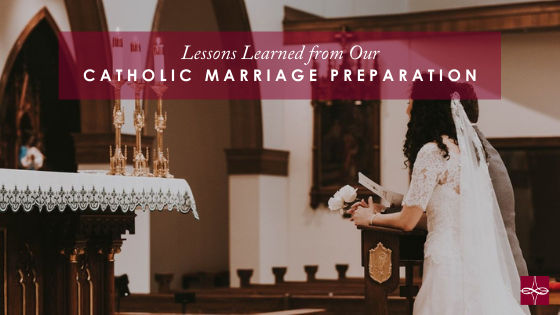

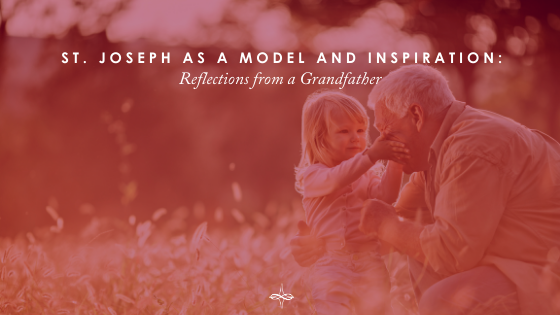

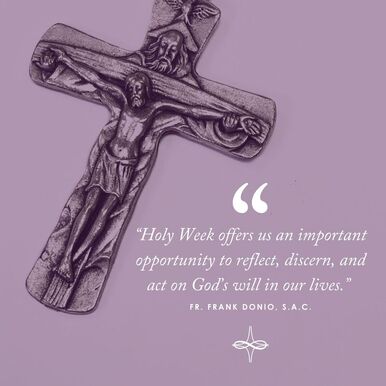
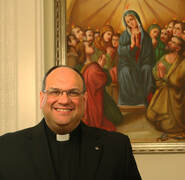
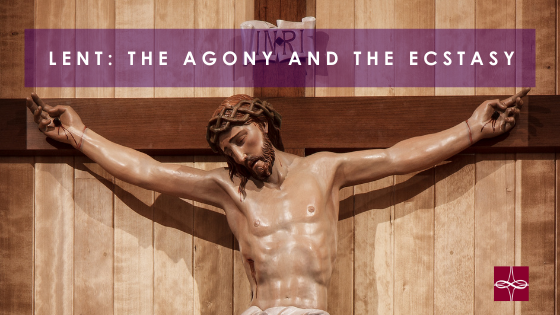

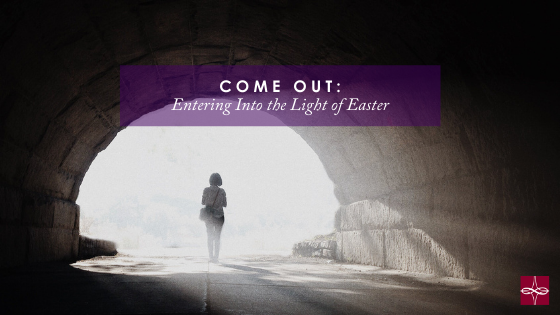

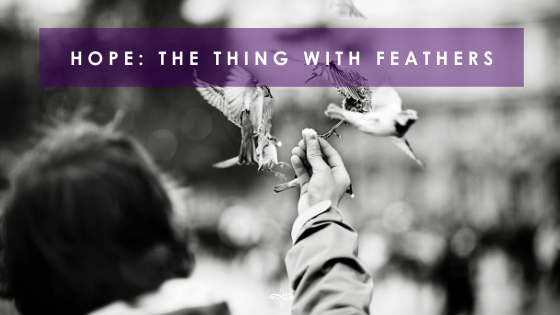
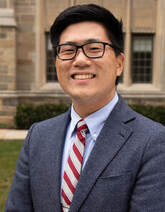
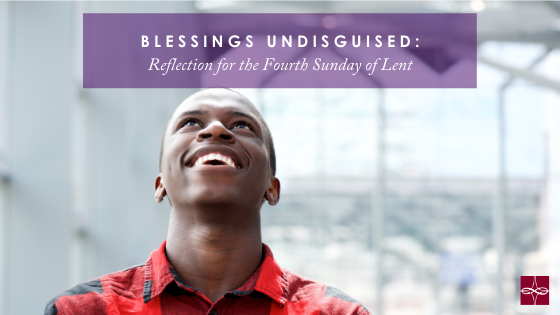

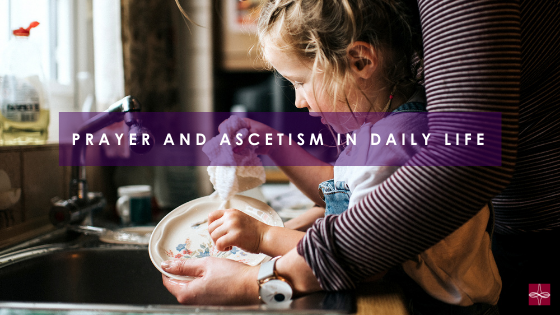

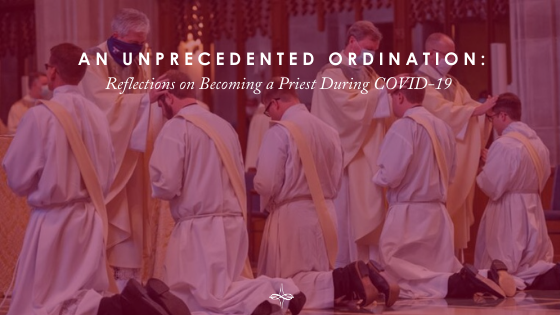
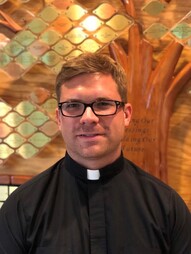
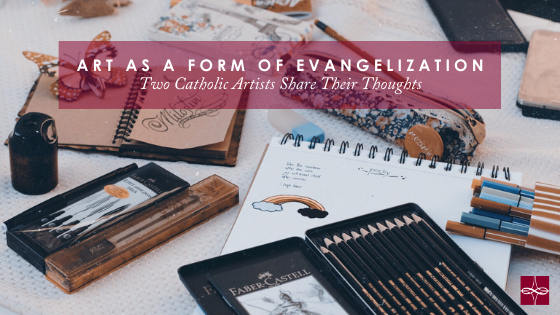



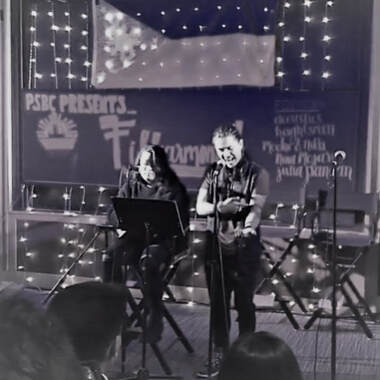

 RSS Feed
RSS Feed